Ivermectin is an anthelmintic used for the treatment of various parasitic diseases. FDA approved drug Ivermectin to treat parasitic infections in humans including parasitic worms, whipworms and hookworms. The antiparasitic medication Ivermectin works against parasitic infections by interfering with the muscle and nerve functions of worms which results in paralyzing and killing the infection-causing worms. Ivermectin is available only with a licensed doctor’s prescription as it is a prescription-only drug.
Ivermectin Uses
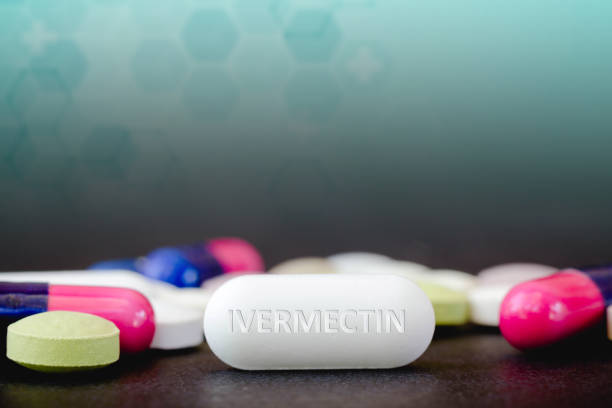
Ivermectin medication is used for the treatment of certain parasitic infections. These infections seriously impact the quality of the sufferer’s life and curing these infections significantly helps improve the quality of life. In patients with weakened immune systems, treating roundworm infections lessens the risk of developing a life-threatening infection.
Oral Ivermectin is used for a variety of parasitic diseases including river blindness disease, threadworm infestation (strongyloidiasis), whipworm infestation, roundworm infestation, filariasis or elephantiasis, loiasis, scabies, head lice infestation and tropical eosinophilia.
Ivermectin is being used for the treatment or prevention of coronavirus disease however FDA has not approved the use of Ivermectin against Covid 19 or coronavirus diseases until you are enrolled in clinical trials. Make sure you talk to your healthcare professional before using this drug concerning the benefits and risks.
Mechanism of Action
Ivermectin for humans rapidly gets absorbed reaching the extreme plasma concentrations with a broad tissue distribution around four hours after a 12 mg Ivermectin dose. This medication puts out of action the affected organisms by paralysing the parasites as it binds to the chloride ion channel of their nerve and muscle cells.
How to Take Ivermectin for Humans
It is recommended to use this drug exactly as prescribed by your healthcare provider. Generally, it is suggested to take Ivermectin tablets on an empty stomach with a glass of water. It should be taken at least one hour before the meal.
Usually, Ivermectin is prescribed as a single dose but it may be prescribed as a series of doses depending on the condition of the patient. The exact dosage depends on the patient’s body weight, medical condition, the severity of the disease and response to the treatment. If your condition does not improve, lasts even after the treatment or gets worse seek your doctor’s advice as soon as possible.
Precautions You Must Take While Under Ivermectin Treatment
Before using Ivermectin inform your doctor if you are allergic to Ivermectin, avermectin, other ingredients or other types of allergies. The drug may comprise inactive ingredients which may cause allergic reactions in certain people.
Tell your doctor about your medical history particularly if you have liver problems, kidney problems or a weak immune system. Also tell your doctor about any prescription medications, non-prescription drugs or supplements you are taking.
Combining Ivermectin with alcohol or cannabis (marijuana) can make you dizzy and also increase the risk of potential side effects so it’s better to avoid these substances while you are taking this drug. Talk to your doctor if you are an alcoholic or using marijuana.
Does Ivermectin Interact With Other Drugs
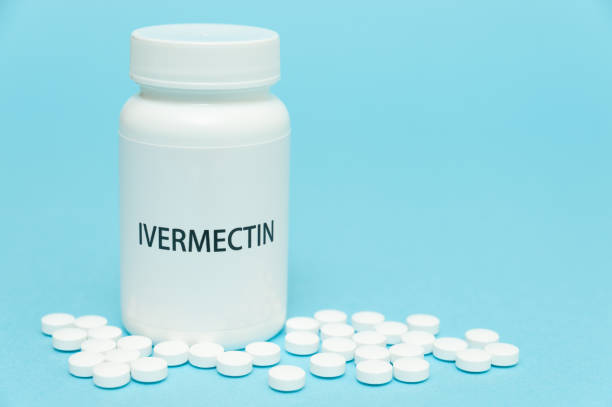
Drug interactions alter the way your medications work and may increase the risk of serious side effects. Always inform your healthcare professional about any prescription and non-prescription drugs or other medicinal products you are using. Do not change the dosage of your medication without consulting your healthcare provider.
Some medications that may interact with Ivermectin include Barbiturates (Butalbital, Phenobarbital), Benzodiazepines (Lorazepam, Clonazepam), valproic acid and Sodium Oxybate.
The most common Ivermectin drug interactions that need to be considered include Aspirin, Augmentin, Benadryl, Claritin, Ubiquinone, Eliquis, Fish Oil, Flonase, Lipitor, Metoprolol Succinate ER, Mucinex, Acetylcysteine, Paracetamol, Paxlovid, Probiotic Formula, Quercetin, Singulair, Synthroid, Tylenol, Vitamin B Complex 100, Vitamin B12, Vitamin C, Vitamin D3, Viatmin K2, Xanax, Zinc, Zyrtec.
Can You Take Ivermectin with Antibiotics?
If you look into the chemical structure of Ivermectin, it comprises Pentacyclic lactones, Cyclohexane, Tetrahydrofuran and two sugar rings. That means due to the complexity of the chemical structure of Ivermectin and the size of the molecule, Ivermectin can interact with some other compounds, chemotherapeutic agents and antibiotics.
Does Ivermectin Interact with Augmentin?
Augmentin (Amoxicillin or Clavulanate) is an antibiotic medication that belongs to the penicillin group of medicines. These antibiotics kill infection-causing bacteria. Augmentin is a prescription medication available with a doctor’s prescription only.
Augmentin is used to treat bacterial infections, aspiration pneumonia, bronchitis, bronchiectasis, kidney infections, febrile neutropenia, melioidosis, sinusitis, skin infections, strep throat, and urinary tract infections among other conditions.
Some experiments reveal that Ivermectin suggestively modifies the pharmacokinetics of Amoxicillin in the blood of the rat but not in the brain of the rat. Ask your doctor about the possible drug interactions before taking these medications.
Possible Side Effects Associated With The Use Of Ivermectin
You may experience mild headache, diarrhoea, nausea, muscle pain or dizziness while using this drug. These side effects usually do not require any treatment and improve within a few days. Your doctor may suggest to you how you can manage these mild side effects.
If you are getting Ivermectin treatment for onchocerciasis or river blindness you may experience some adverse reactions during the initial four days of the treatment due to dying parasites. These reactions may include tender or swollen lymph nodes, joint pain, vision changes, redness or swelling in eyes, rash, itching and fever.
Tell your doctor immediately if you experience serious side effects if your side effects last longer. Serious side effects include neck or back pain, fast heartbeat, chest pain, confusion, drowsiness, loss of consciousness, seizures or swelling around the face, hands, arms and feet.
Certain patients may experience a serious allergic reaction to this drug which is very rare. Symptoms of a severe allergic reaction include trouble breathing, severe dizziness, rash, itching and swelling of the face, tongue or throat. Get immediate medical attention right away if you have any such symptoms.
Ivermectin Possess Promising Therapeutic Properties
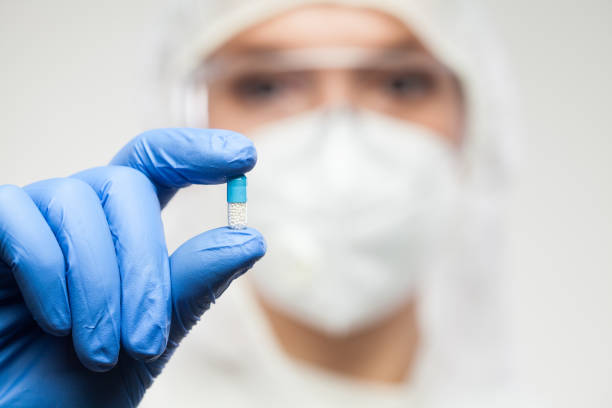
The Promising drug Ivermectin has been successfully used for over three decades. Initially, Ivermectin was used as an anthelmintic drug to treat river blindness, strongyloidiasis, lymphatic filariasis and head lice. Later various studies revealed the effectiveness of Ivermectin against a variety of RNA viruses.
In Peru and Bolivia Ivermectin has been approved for use in mild cases of coronavirus disease. The initial path-breaking in Vitro study of Ivermectin was performed in Australia and the advantage of Ivermectin against SARS-CoV-2 infected cells has been recognized during that study.
Ivermectin was found to constrain viral replication with a 5 µM dose. The study found that the viral load was reduced significantly. This remarkable finding demonstrated that a single dose of Ivermectin significantly controlled viral replication.
Earlier, it has been recognised that Ivermectin prevents HIV-1 replication by stopping the entry of integrase protein inside the nucleus. Various RNA viruses rely on their interaction with IMP α/β1 for their replication. Ivermectin has proven to act as a broad-spectrum drug by constraining the IMP α/β1, thus overpowering the viral replication in such infections as HIV, chikungunya and viz influenza.
Studies demonstrated that viral replication and SARS-CoV infection are facilitated through the transporter IMP α/β1. Ivermectin has been widely used in a clinical setting and no severe adverse effects of this drug have been noticed so far.
Additionally, Ivermectin has shown its effectiveness against certain bacterial and viral infections. It has demonstrated a bacterial killing activity against different species of Mycobacterium (Mycobacterium tuberculosis). Experiments revealed the Effectiveness of Ivermectin against Chlamydia trachomatis.
The in vitro studies avian influenza A virus demonstrated that Ivermectin inhibited the nuclear transmission of the viral ribonucleoprotein complexes.
Efficiency Of Ivermectin Against Viral Infections
Ivermectin has established therapeutic efficacy as an antiparasitic drug worldwide. It has delivered promising outcomes against RNA and DNA viruses. As per recent reports, it also suppressed the Zika virus, the drug significantly inhibited the dengue virus and was found to be safe during trials.
The first study conducted concerning the use of Ivermectin for Covid-19 was an in vitro study. It reported a noteworthy reduction in viral load. In this study, the researchers found no observable toxicity using Ivermectin. This remarkable study flagged the way for more clinical trials on Ivermectin use.
Presently, many studies are being performed to evaluate the effectiveness of Ivermectin alone and with other drugs as well. A coordinated case-controlled study was conducted that suggests a 73% reduction in COVID-19 cases with two 300 µg doses used 72 hours apart signifying its notable prophylactic activity. However, the single dose could not deliver any notable prophylactic activity.
A retrospective cohort study performed in the USA revealed that Ivermectin significantly reduced mortality in hospitalized patients in Florida Hospitals. Another observational comparative study was performed in the USA that comprised 1970 Covid-positive critically ill patients from various hospitals. This study stated significant improvement in the survival rate of patients.
The study performed in the early stage confirmed patients with coronavirus infection, the results show that 99% of patients recovered with an initial dose of 100-200 mcg/kg and the final dose of 400 mcg/kg.
During in vitro studies chikungunya virus showed that Ivermectin restricted the CHIKV infection in the BHK-21 cell line.
Random Control Clinical Trial
A random control clinical trial was conducted with two groups of Covid positive patients in Bangladesh. Group A patients were treated using a combination treatment of Ivermectin and Doxycycline. Group B patients were treated using Hydroxychloroquine and Azithromycin.
After comparing these two groups with two different combinations, the researchers found that the outcomes for group A were better. Moreover, in group A the adverse events were 31.67% while in group B the adverse events were 46.43%.
Multifaced Medication Doxycycline
Doxycycline is a derivate of Tetracycline that is broadly used to treat infections caused by Mycoplasma pneumonia, Haemophilus influenza, streptococcus pneumonia, Acinetobacter, Chlamydia psittaci and Klebsiella species. Oral tetracycline therapy is also used for the treatment of other infections including cholera, plague and rickettsia infections.
The pharmacokinetic pattern of this drug is remarkable. It reaches maximum plasma level within two hours after its administration. The literature review demonstrated that it does not cause any serious adverse events during the normal course of treatment.
Unlike other antibiotic medications, Doxycycline does not cause diarrhoea. The drug targets modifying and blocking the signalling pathways involved in the viral infection through multiple steps. The immunomodulatory properties of Doxycycline better the systemic and pulmonary inflammation in a Murine polymicrobial sepsis model.
Wide-ranging research has demonstrated that SARS-CoV-2 infection amplified the expression of the hyaline membrane in acute pulmonary damage post-infection. As a result, the fibrin level is noticed to be augmented. High fibrin levels and low surfactant levels increase the deposition of collagen by encouraging the adherence and progression of fibroblasts culminating in lung fibrosis.
As there is no treatment for fibrosis, it is vital to develop therapeutic interventions to prevent or slow down this fibrotic process. General abnormalities in thickening and fibrinolytic pathways incline to alveolar deposition of fibrin in the adult respiratory distress syndrome.
Current studies revealed that Doxycycline possesses the potential to impede the MMPs necessary for the deprivation of the extracellular matrix of the lungs, therefore plummeting the fibrosis process.
The Usefulness of Doxycycline (Antibiotic Drug) in Viral Infections
Doxycycline is supposed to produce a notable reduction in viral load in SARS-CoV-2 infected cell lines. The inhibitory effect was comparable with other medications such as Azithromycin, Lopinavir and Hydroxychloroquine.
An important study has revealed that Doxycycline has a two-step mechanism that prevents viral entry and inhibits viral replication. It has also been reported that it uses the same mechanism in defeating the chikungunya virus.
When dengue patients are treated using Doxycycline, it has been found to inhibit dengue virus replication and its entry inside the cells by constraining the dengue virus serine protease and overpowering the E2 envelope.
Studies reported that Doxycycline treatment for 5 to 14 days has shown outstanding improvements in covid 19 symptoms in high-risk patients with an associated pulmonary disease. It was the initial report on SARS0CoV-2-infected symptomatic patients.
Studies also revealed that Doxycycline prophylaxis has been operative in preventing acute lung injury in experimentally induced H3N2 virulence in mice. The in vitro studies dengue virus reported noteworthy inhibition of the infection. The drug Doxycycline inhibited serine protease enzymes as well as viral entry.
Study Conducted for Suddenly Developed Clinical Symptoms
A significant study was performed on high-risk patients who were infected with SARS-CoV-2 and had sudden clinical symptoms. these patients were with one or more high-risk complications including diabetes, obesity lung and cardiac complications.
Doxycycline 100mg was administered orally or intravenously for seven days in combination with regular care. The 85% of the patients involved in this study were found to be improved and recovered well.
The Combination Therapy Involving Ivermectin and Doxycycline Can Successfully Ease the Cytokine Storm of COVID-19 Infection
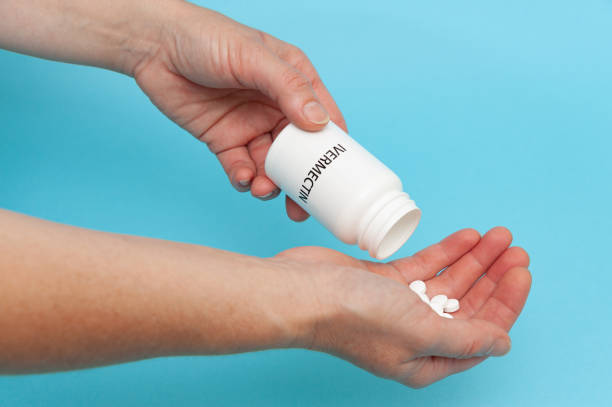
During the occurrence of coronavirus 2, an unprecedented global health crisis arose that caused millions of deaths across the world. At that particular time when the infected cases were at their peak, no treatment was able to control the cytokine storm.
Subsequently, various vaccines have been produced and many others are being produced to combat this deadly infection. Even though, most of the WHO-approved vaccines have proven to be excellently effective many economically poor and developing countries still have not gotten the vaccination against SARS-CoV-2 because of the unequal distribution of vaccines around the world.
Moreover, the doubt regarding the efficacy of available vaccines against evolving variants and mutants was a matter of concern. Because of the multistep pathogenesis and exceptional features, combination therapy involving safe immunomodulatory and antiviral drugs should be recognised to be the highly effective and suitable therapeutic solution for this infection.
Conferring the thorough assessments, it was assumed that it would be exciting and fruitful to study the healing potential of Ivermectin and Doxycycline, given their parts in many biological pathways involved in SARS CoV-2 pathogenesis. As per some other studies Doxycycline constrained dengue virus replication in vitro by decreasing viral protease activity and access in the host cell.
A comprehensive literature search was conducted using Web of Science, Scopus and Pubmed based on the inclusion and exclusion criteria. The present study offers the molecular mechanisms involved and a comprehensive record, weighing the role of combined therapy comprising Ivermectin and Doxycycline in relieving the cytokine storm of coronavirus disease and preventing death due to respiratory failure (lung function declines profoundly during coronavirus infection).
The Conclusion And The Efficacy Review
Several mono-drug treatments have been used with barely any encouraging outcomes. At the same time, various combination therapies have been used to treat this infection such as Hydroxychloroquine-Azithromycin and Lopinavir-Ritonavir but with little advantage.
The intricate nature of COVID-19- pathogenesis supports the choice of medications that can deliver their effects through a multistep mechanism. Referring to the diverse mechanisms of action of Ivermectin and Doxycycline this combination therapy may effectively reduce the fatality of infection by averting the cytokine storm.
The recognized therapeutic usefulness of Ivermectin against several viral infections such as COVID-19 infection has been discussed in this review. The notable results of Ivermectin against many infections show that it could be effective in the treatment of mysterious coronavirus disease.
This report also presents the recognised immunomodulatory and antiviral activity of Doxycycline. Ivermectina and Doxycycline have their different modes of action therefore their synergistic impacts may contain viral infection by targeting various sites of disease pathogenesis. These results reveal that the combination of Ivermectin and Doxycycline can be effective in controlling the harshness of the infection as both medications act synergically in providing antiviral effects.
Moreover, Doxycycline offers the additional advantage of dropping the cytokine storm. The clinical outcomes of COVID-19 support that combining antiviral and immunomodulatory drugs can provide the best outcomes against this fatal infection.
Due to the three-step mechanism of action of this combination treatment, well-planned controlled trials should be performed to explore this treatment further to establish its healing impact against this infection. Researchers need to conduct clinical studies for more clear outcomes.
As per the above-mentioned findings, it is decided that due to its part in blocking or modifying a variety of pathways involved in the COVID-19 pathogenesis, Doxycycline can be a useful medication for decreasing the severity of infection when used in combination with Ivermectin.
A report of conducted clinical trials using this combination therapy shows that the respiratory symptoms were reduced and the body temperature of patients was also normalized. After reviewing many different clinical trials it is concluded that the combination treatment of Ivermectin and Doxycycline is proven to be a safe, effective and affordable therapeutic option against the cytokine storm.
The assessment of the pharmacological and pharmacokinetic profile of these medications demonstrated that suitable oral and parenteral formulations of these two drugs can be developed to combat COVID-19 infection, particularly in poor and developing countries.
Randomized Trial To Determine The Efficacy Of Ivermectin And Doxycycline Combination Treatment For Symptoms Of Covid-19
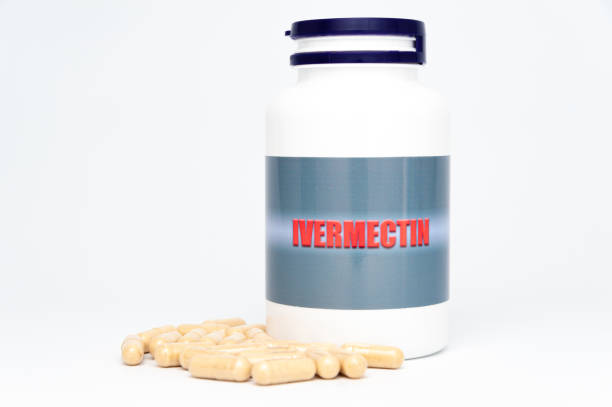
The randomized trial was performed to assess if Ivermectin combined with Doxycycline lessen the clinical recovery time in adult patients with COVID-19 infection. It was a randomized, blinded, placebo-controlled trial in patients with mild to moderate covid19 symptoms.
The patients were randomly assigned to placebo and treatment groups. The initial result was the duration from the treatment to clinical recovery. The secondary results were disease progression and insistent COVID-19 positivity by RT-PCR.
Outcomes Of The Trial
A total of 556 patients were screened, 400 patients were enrolled and 363 patients completed follow-up. The average patient’s age was 40 years and 59% of patients were men. The median recovery time in the treatment group was 7 days and in the placebo group was 9 days.
61% of patients in the treatment group and 44% of patients in the placebo group recovered in ≤7 days. The number of patients who were RT-PCR positive on the 14th day and whose disease had not progressed was notably lower in the treatment group in comparison to the placebo group.
Clinical Outcome Measures
The primary results were the number of days needed for clinical recovery from day one. clinical recovery was categorised into three parts: early recovery within seven days, intermediate recovery within seven to eleven days and late recovery within 12 or more days.
Secondary results were about disease progression through minor, moderate, severe or death and the number of patients who remained COVID-19 positive on the 14th day. Adverse drug reactions were also noticed.
The mild disease was detected as symptoms of an upper respiratory tract viral infection such as dry cough, mild fever, nasal congestion, sore throat, muscle pain, headache and malaise. Moderate symptoms including shortness of breath and cough were noticed without the symptoms of severe pneumonia. Severe diseases included tachypnoea, dyspnoea and hypoxia.
These classifications were made as per the national guidelines of Bangladesh and the World Health Organization. The co-researchers assessed the result, graded the disease and recorded adverse reactions.
Conclusion
Patients experiencing mild to moderate symptoms of COVID-19 infection who were treated with Ivermectin and Doxycycline combination therapy recovered earlier. Those patients were less likely to develop disease severity and to be covid-19 negative on the 14th day by RT-PCR.
Preventative Role of Ivermectin in Severe Acute Respiratory Syndrome
Healthcare workers who are involved in treatment procedures of Covid 19 infection and providing services to infected patients are prone to acquiring severe acute respiratory illness related to SARS-CoV-2. It is highly essential to prevent healthcare workers from getting infected to maintain proper healthcare services.
The therapeutic and defensive role of Ivermectin covid 19 disease is being explored. Referring to the promising outcomes of oral Ivermectin in vitro studies, a study was performed to establish the prophylactic properties of oral Ivermectin in preventing SARS-CoV-2 infection among front-line healthcare workers.
A prospective cohort study was performed at AIIMS Bhubaneswar India, which has been delivering COVID and non-covid care since the coronavirus disease arrived in India. All students and employees of AIIMS participated in this study. The approval of two doses of oral Ivermectin was considered as exposure that was 300 μg/kg per dose at an interval of 72 hours.
The initial result of this study was covid 19 infection in the following month of consuming Ivermectin, detected as per Government of India testing criteria guidelines (RTPCR). The log-binomial model was utilized to evaluate adjusted relative risk and the Kaplan Meier failure plot was utilized to evaluate the possibility of covid 19 infection with the follow-up time.
The outcomes of 3892 people, 3532 enrolled in the study. The Ivermectin uptake was 62.5% and 5.3% for 2 doses and a single dose respectively. The participants who used Ivermectin prophylaxis showed a lower risk of acquiring symptoms suggestive of SARS-CoV-2 infection.
Healthcare workers who took two oral doses of Ivermectin showed a notably lower risk of getting covid 19 infection in the following month. Females had a comparatively lower risk of acquiring infection than males. The complete risk of reduction of SARS-CoV-2 infection was 9.7% and just 1.8% of the enrolled people experienced adverse events which were minor and self-limiting.
Conclusion
Two oral doses of Ivermectin given 72 hours apart as chemoprophylaxis among healthcare workers decreased the risk of developing COVID-19 infection by 83% during the following month. The safe, impactful and affordable chemoprophylaxis has significance in the containment of infection alongside the vaccine.
